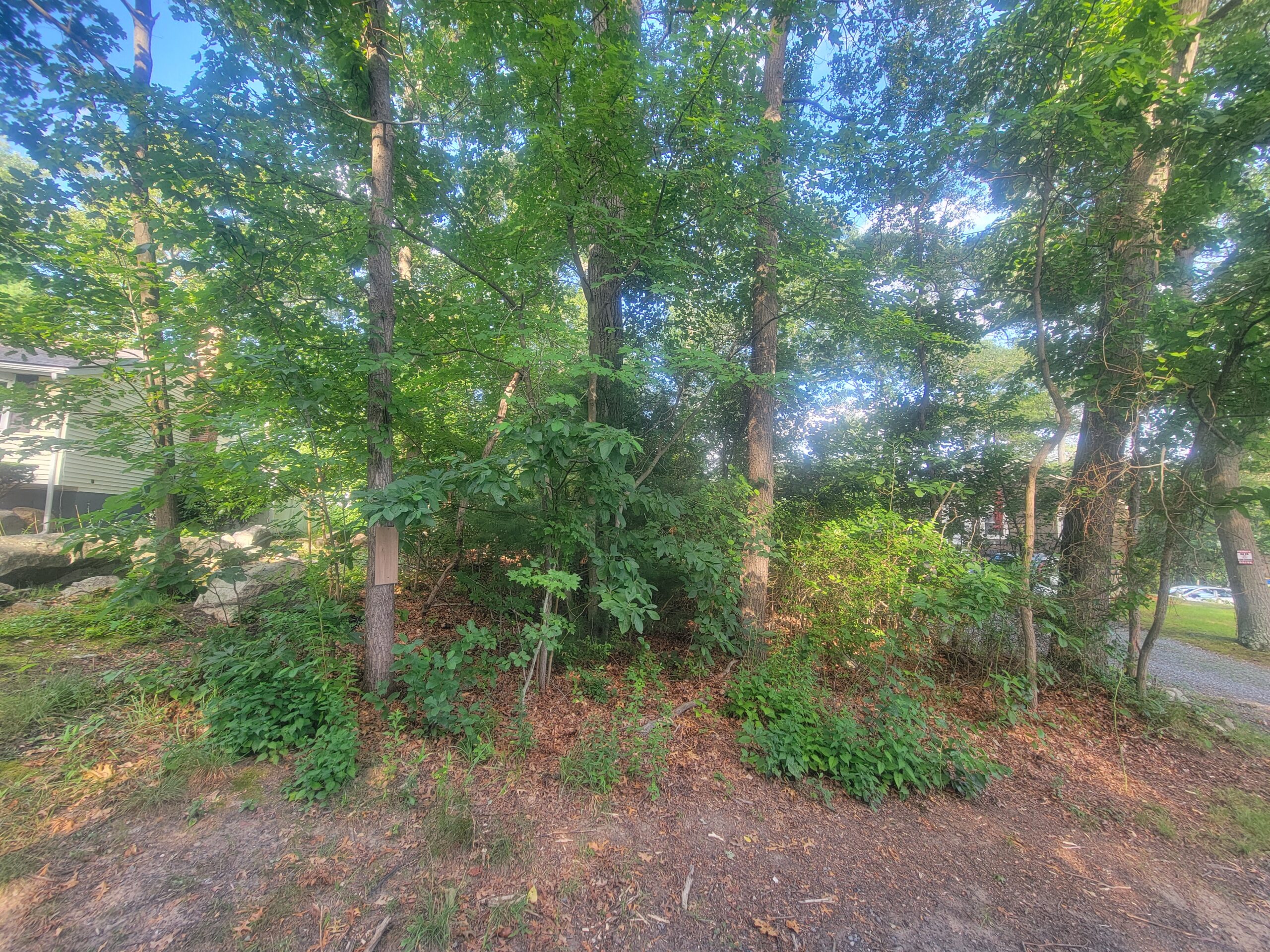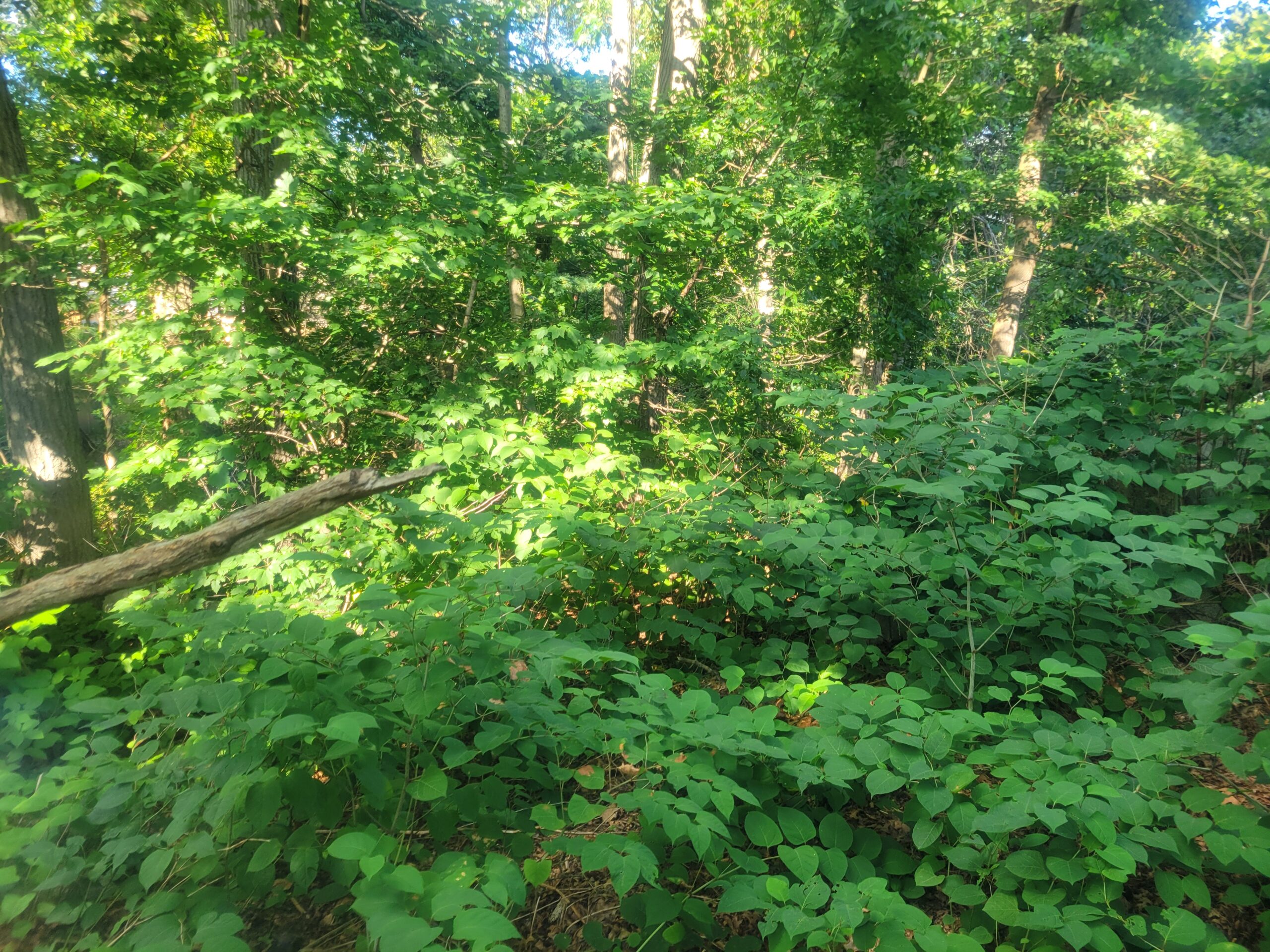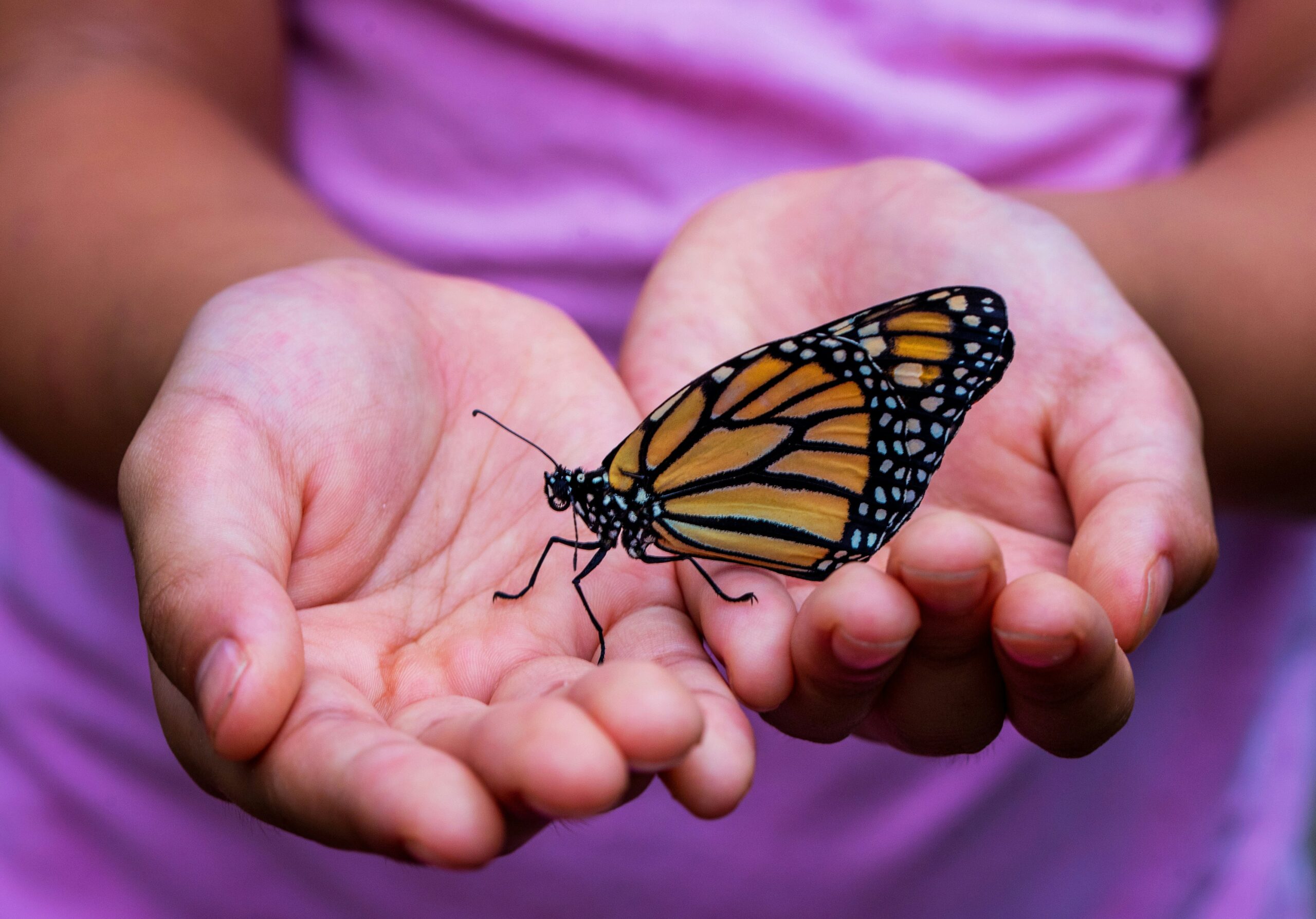Massachusetts Urban Conservancy Launches First Fundraiser for Biodiversity Project in Randolph
| . Posted in buildings, News - 0 Comments
By Eric Weld, MassLandlords, Inc.
Our new conservancy, the Massachusetts Urban Conservancy (MUC, pronounced “muck”), is plowing forward with plans to remove invasive plants from a plot of land pledged for donation in an Environmental Justice neighborhood in Randolph. We intend to protect the land as a valuable green space and eventually plant more native trees and plants there to attract pollinators.

This 0.14-acre plot of overgrown, unbuildable land in Randolph, Mass., was donated to Massachusetts Urban Conservancy (MUC) by the Sudnovsky Family Trust. MUC launching its first fundraiser, on GoFundMe, to transform the land into a healthy, biodiverse ecosystem. Cc by-sa masslandlords
On Tuesday, Aug. 26, we will launch an online fundraising campaign, on GoFundMe, to support our ownership of the Randolph land and some of our horticultural work there. Please visit our GoFundMe and support our project, it’s very easy! We are aiming to raise more than $10,000 to remove invasive plants on the land, purchase tools and equipment, cover closing, attorney and insurance costs, and, we hope, eventually plant native trees and plants.
The Randolph land, assessed at $11,000, represents MUC’s first donation. It was pledged by the Sudnovsky Family Trust, which has owned the land for several decades.
In coming weeks, we will hold several public information Zoom sessions that we hope you will attend. These sessions will be half-hour, informal conversations with key partners working with us on various aspects of our biodiversity projects.
To kick off the series, MUC founders Doug Quattrochi, MassLandlords Executive Director, and Eric Weld, writer/editor, will discuss MUC’s mission, shared goals between MUC and MassLandlords, economic benefits for property owners of creating green space, and much more. The event will take place online on Tuesday, Aug. 26, from 6–6:30 p.m. Register to attend. It’s free.
Subsequent guests in the series will include: Don Sanders, executor of the Sudnovsky Family Trust, on Friday, Aug. 29, at noon; Nate Fournier, owner and operator of Reimagined Roots, an organic landscaping company based in West Boylston, on Thursday, Sept. 4, at 5 p.m.; Tom Chase and Tripti Thomas-Travers, directors of Village and Wilderness, a nonprofit forum for biodiversity organizations, on Thursday, Sept. 18, at 5 p.m.; and Uli Lorimer, director of horticulture at Native Plant Trust, and author of the influential book The Northeast Native Plant Primer: 235 Plants for an Earth-Friendly Garden, to be scheduled.

The Randolph plot is unused with large swaths overtaken by invasive plants such as Japanese knotweed, a pernicious vine visible here. Knotweed, when left unchecked, can aggressively crowd out other plant species and even release chemicals to inhibit their growth, leading to ecological deterioration. MUC aims to remove this knotweed and other invasive plants here to encourage diverse growth and ecological health. MUC’s first fundraiser, on GoFundMe, will help support the project. Cc by-sa masslandlords
Raising Awareness of Biodiversity
We launched MUC early in 2025 with the intention of transforming empty, unbuildable urban lots into healthy green spaces that would help restore biodiversity and pollinator habitats in Massachusetts cities and towns. We reached out to MassLandlords membership seeking donations of unbuildable land for MUC purposes and received two pledges.
The Randolph site is a 0.14-acre parcel situated between two homes. It’s overgrown with knotweed and other invasive plants. It’s strewn with yard debris. Most importantly, this land is not a pollinator habitat. We need more pollinator habitats, especially in our cities and towns.
We see the Randolph project as our beginning. MUC also received a pledge for donation of a larger piece of land in the Indian Orchard section of Springfield, from a MassLandlords member. The land consists of 10 empty housing lots, currently overgrown, untended and partially in a wetland. We hope to turn to that land eventually, as well, to begin the process of transforming it into a healthy ecosystem with strong plant and animal species diversity.
Just as importantly, MUC seeks to raise public awareness for the importance of biodiversity and healthy habitats for pollinators. That’s one reason we focus on urban areas. Most people live in cities and towns. If we can demonstrate to urban residents the widespread benefits of living among healthy nature and thriving green space, we feel confident that we can build a movement toward restoring healthy biodiversity in our cities and beyond.
Along with educating urban residents, we also intend to offer educational resources for local students near our project sites. We’ve already partnered with science teachers at Springfield Honors Academy to devise environmental curricula, and will work with Randolph teachers in connection with our site there.

An important aspect of MUC’s fundraiser and work in general is partnering with science teachers and their students at schools near our project sites to devise educational units and field trips around a range of topics, including pollinators’ habits and behaviors, biodiversity, urban ecology, biogeochemical cycles, impacts of climate change, tree growth and much more. Cc by-sa david clode unsplash
MUC – MassLandlords Alignment
We believe strongly in the MUC mission. We invite you to help us get started with healthy momentum by visiting our GoFundMe page and donating to our campaign.
It’s a natural fit for landlords. MassLandlords members are landowners. As such, we have inherent interest in the natural health and longevity of our land. One of the most optimal ways to ensure our lands’ health and longevity is to balance the diversity of plant species. By doing so, we attract a diverse array of pollinators with an assortment of foods for their consumption. Pollinators then carry and distribute pollen to other plants, many of which we use for our own food, medicine, raw materials and other purposes.
But promoting a healthy, natural environment isn’t the only reason the MassLandlords and MUC missions align. Working with MUC can also enhance property owners’ bottom lines. Donating your unbuildable land to MUC for the purpose of creating urban green space clears the land off donors’ books, relieving them of annual real estate tax payments, insurance premiums and any maintenance costs. MUC also offers grass lawn replacement consultation services with an eye toward reducing property owners’ mowing and landscaping costs with self-sustaining gardens.
MUC is only beginning. This GoFundMe campaign will help us notch our first project and start showing urban residents the many benefits of creating biodiversity and pollinator habitats across Massachusetts’ cities and towns.
Join our mission. Donate to our fundraiser.




